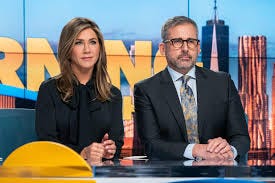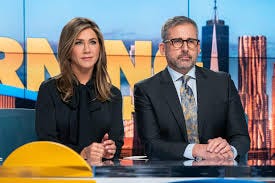Last year, I picked up a first novel by the Puerto Rican writer Andrew Boryga called Victim (it’s just out in paperback). It tells the story of an adolescent boy from the Bronx whose father, a drug kingpin, is killed before his eyes. Under the tutelage of a pro bono college counselor at a prep school (think: Fieldston), he gets admitted to an Ivy League college (think: Cornell), and becomes a campus activist who grows progressively more famous for decrying systemic racism. But his tendency to embellish, even fabricate, outrages creates complications even as he becomes a social media star.
I adopted Victim for the syllabus for my “Money, Morals, and Mobility” course this year (along with Hernan Diaz’s recent Pulitzer-prize winning novel Trust and the 1961 film version of Lorraine Hansberry’s classic A Raisin in the Sun) as a way of adding viewpoint diversity to texts that lean left. But by early 2025, about six months after I submitted my reading list, I was having adopters' remorse: Victim now seemed badly dated. Donald Trump was (back) in the White House; Diversity, Equity, and Inclusion programs were being shut down (or, more commonly, rebranded), and racial/sexual cancellations now seemed almost like quaint relics of an earlier era. As it turned out, Victim worked out better than I expected, because it was a better novel than I remembered, and it still seemed very relevant to my college-bound students, decisively shaped by the political matrix of the last few years. (I also paired it with the 2003 film Shattered Glass, about a real-life elite young journalist at the New Republic who also fabricated stories, which turned out to be a good point of comparison.) But Victim now seems to me like a historical artifact rather than a bulletin from the trenches.
I had a similar reaction when, after indulging the family budget to subscribe to Apple TV, I belatedly got around to watching its flagship drama The Morning Show. I’m only a few episodes in, but I’m again struck by a premise that already seems time-bound: Steve Carell plays a Matt Lauer-like network anchor who is summarily fired amid accusations of sexual harassment, triggering a string of dominoes that result in his on-air partner (Jennifer Aniston) suddenly paired with a maverick journalist (Reese Witherspoon) in a desperate bid to revive sagging network ratings. The Morning Show is a quintessential product of its Me-Too moment, sleekly wrapped in shameless Manhattan apartment-porn production design and unselfconscious blue-state pieties straight out of the Aaron Sorkin school of snappy dialogue. (Witherspoon’s equality feminism far outshines any iconoclastic accents we’re meant to catch under the klieg lights.)
I began watching The Morning Show a few weeks after finishing another Apple TV series, Ted Lasso—the main reason I started subscribing. Like just about everybody else, I loved it. The show scratched my FOMO itch: I heard so much about it during COVID-19, which was the series’ heyday. Ted Lasso’s feel-good sensibility was perceived by many as a piece of conscious counter-programming at a time when social-justice concerns dominated film and TV content, as well as casting and other considerations.
This is an avowedly anecdotal report on the culture front. I’m using it to suggest that when we look back on the 2020s, there will be a real difference between the early twenties and the late twenties, much in the way there was a sharp cultural shift between the early sixties and the late sixties. I feel too immersed in this moment—which, strictly speaking, is the mid-twenties—to be able to say exactly we’re headed (though the hard-bitten cynicism of Slow Horses, and the chilly dystopianism of Severence, to cite two other Apple series) seem closer to the spirit of the age, which have more of a conspiratorial edge suspicious of elite authority. I’ll close with the bywords of twentieth-century television: Stay tuned.



